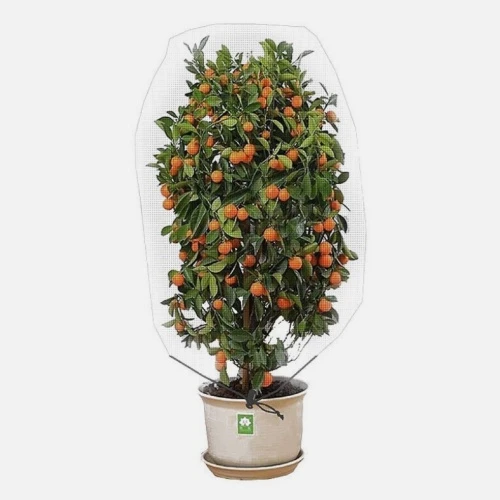-
 Afrikaans
Afrikaans -
 Albanian
Albanian -
 Amharic
Amharic -
 Arabic
Arabic -
 Armenian
Armenian -
 Azerbaijani
Azerbaijani -
 Basque
Basque -
 Belarusian
Belarusian -
 Bengali
Bengali -
 Bosnian
Bosnian -
 Bulgarian
Bulgarian -
 Catalan
Catalan -
 Cebuano
Cebuano -
 China
China -
 Corsican
Corsican -
 Croatian
Croatian -
 Czech
Czech -
 Danish
Danish -
 Dutch
Dutch -
 English
English -
 Esperanto
Esperanto -
 Estonian
Estonian -
 Finnish
Finnish -
 French
French -
 Frisian
Frisian -
 Galician
Galician -
 Georgian
Georgian -
 German
German -
 Greek
Greek -
 Gujarati
Gujarati -
 Haitian Creole
Haitian Creole -
 hausa
hausa -
 hawaiian
hawaiian -
 Hebrew
Hebrew -
 Hindi
Hindi -
 Miao
Miao -
 Hungarian
Hungarian -
 Icelandic
Icelandic -
 igbo
igbo -
 Indonesian
Indonesian -
 irish
irish -
 Italian
Italian -
 Japanese
Japanese -
 Javanese
Javanese -
 Kannada
Kannada -
 kazakh
kazakh -
 Khmer
Khmer -
 Rwandese
Rwandese -
 Korean
Korean -
 Kurdish
Kurdish -
 Kyrgyz
Kyrgyz -
 Lao
Lao -
 Latin
Latin -
 Latvian
Latvian -
 Lithuanian
Lithuanian -
 Luxembourgish
Luxembourgish -
 Macedonian
Macedonian -
 Malgashi
Malgashi -
 Malay
Malay -
 Malayalam
Malayalam -
 Maltese
Maltese -
 Maori
Maori -
 Marathi
Marathi -
 Mongolian
Mongolian -
 Myanmar
Myanmar -
 Nepali
Nepali -
 Norwegian
Norwegian -
 Norwegian
Norwegian -
 Occitan
Occitan -
 Pashto
Pashto -
 Persian
Persian -
 Polish
Polish -
 Portuguese
Portuguese -
 Punjabi
Punjabi -
 Romanian
Romanian -
 Russian
Russian -
 Samoan
Samoan -
 Scottish Gaelic
Scottish Gaelic -
 Serbian
Serbian -
 Sesotho
Sesotho -
 Shona
Shona -
 Sindhi
Sindhi -
 Sinhala
Sinhala -
 Slovak
Slovak -
 Slovenian
Slovenian -
 Somali
Somali -
 Spanish
Spanish -
 Sundanese
Sundanese -
 Swahili
Swahili -
 Swedish
Swedish -
 Tagalog
Tagalog -
 Tajik
Tajik -
 Tamil
Tamil -
 Tatar
Tatar -
 Telugu
Telugu -
 Thai
Thai -
 Turkish
Turkish -
 Turkmen
Turkmen -
 Ukrainian
Ukrainian -
 Urdu
Urdu -
 Uighur
Uighur -
 Uzbek
Uzbek -
 Vietnamese
Vietnamese -
 Welsh
Welsh -
 Bantu
Bantu -
 Yiddish
Yiddish -
 Yoruba
Yoruba -
 Zulu
Zulu
screen mesh stainless steel
Understanding Stainless Steel Screen Mesh
Stainless steel screen mesh is a versatile and durable material widely used across various industries. Its lightweight yet strong properties make it an ideal choice for filtration, construction, and other applications. This article aims to delve into the characteristics, benefits, and common uses of stainless steel screen mesh, illustrating why it has become a preferred material for many professionals.
Stainless steel screen mesh is typically made from high-quality stainless steel wires that are woven together. The most common types of stainless steel used in manufacturing screen mesh include 304 and 316 grades. Grade 304 is often utilized for its excellent corrosion resistance and good tensile strength, making it suitable for indoor and outdoor applications. On the other hand, grade 316 offers heightened resistance to corrosion, especially in more aggressive environments exposed to harsh chemicals or saltwater.
Understanding Stainless Steel Screen Mesh
Another important advantage of stainless steel screen mesh is its resistance to corrosion and oxidation. Unlike other materials, stainless steel does not rust easily, which is crucial in environments subject to moisture or chemicals. This property not only extends the lifespan of the mesh but also eliminates the need for frequent replacements, thus providing cost-effectiveness over time.
screen mesh stainless steel

Moreover, stainless steel screen mesh is easy to clean and maintain. The non-porous surface does not trap dirt and grime as other materials might, allowing for quick and straightforward cleaning processes. This characteristic is particularly beneficial in industries such as food processing, where hygiene is paramount.
The uses of stainless steel screen mesh are numerous and varied. In construction, it serves as reinforcement in concrete or as an infill for balconies and stairways, providing both safety and aesthetic value. In the filtration sector, it is employed to separate solids from liquids in water treatment plants, chemical processing, and food and beverage industries. Additionally, it is commonly used in mining operations for sifting and grading purposes.
In landscaping and agriculture, stainless steel screen mesh can aid in erosion control and crop protection by serving as fencing or netting to deter pests while allowing air circulation. Its aesthetic appeal also lends itself to artistic installations or architectural designs.
In conclusion, stainless steel screen mesh stands out for its durability, versatility, and extensive range of applications. Whether in construction, filtration, or agriculture, its strength, corrosion resistance, and ease of maintenance make it a highly beneficial choice. As industries continue to evolve, the demand for high-quality materials like stainless steel screen mesh is only expected to grow, cementing its place as a staple in various sectors.
-
Shipping Plastic Bags for Every NeedNewsJul.24,2025
-
Safety Netting: Your Shield in ConstructionNewsJul.24,2025
-
Plastic Mesh Netting for Everyday UseNewsJul.24,2025
-
Nylon Netting for Every UseNewsJul.24,2025
-
Mesh Breeder Box for Fish TanksNewsJul.24,2025
-
Expanded Steel Mesh Offers Durable VersatilityNewsJul.24,2025











